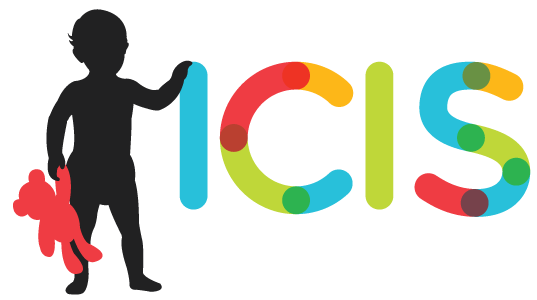Boston Children’s Hospital and Harvard Medical School
Program Description
Two-year postdoctoral fellowships funded by the National Institute of Mental Health (NIMH) are available for researchers who seek to improve or expand their ability to conduct interdisciplinary, translational neuroscience research in neurodevelopment and neurodevelopmental or mental disorders.
Research Areas
Postdoctoral projects can encompass basic and/or clinical research and might include investigation into one or more of the following areas:
- Developmental psychopathology
- Interventional studies
- Molecular or behavioral neurogenetics
- Neuroimaging
- Neurobiology
- New diagnostic methods
- Outcomes research
Program Areas/Faculty Department Affiliations
Fellows with MD or PhD degrees conduct research during the program with mentors/advisors from the following areas:
- Computer Science
- Developmental/Behavioral Pediatrics
- Genetics
- Neurology
- Neurobiology
- Neuroradiology
- Neuroscience
- Neurosurgery
- Psychiatry and Behavioral Sciences
- Psychology
Trainee Program
This two-year training program provides trainees with the essential guidance, training, and mentoring critical to launching an independent career in academic research. The training program starts by recruiting the most talented trainees from MD/PhD, MD, and PhD programs who are interested in pursuing a career in translational neuroscience research and academia. Close interaction between T32 mentors and trainees are supplemented by a structured training program that provides a common knowledge base with respect to translational neuroscience research. Supplemental work will focus on Translational Neuroscience Seminar Series and Proseminars complemented by trainee specific coursework. Administratively, the program consists of co-directors (Drs. Nelson & Glahn) and a group of 19 highly skilled and successful training faculty from diverse array of disciplines.
How to Apply
Applicants should first consult the list of potential mentors and confirm that he/she is willing to serve as primary mentor. Eligible candidates should submit one PDF via email to with the following documents: (1) trainee’s CV, (2) trainee’s research statement (max 2 pages) about research interest and specifically why they have selected this training program, and (3) names and contact information of 2 potential letter writers. Project proposals should clearly state the interdisciplinary nature of the project. If selected for an interview, we will also require: (5) 2 letters of support (one from trainee’s mentor) and (6) mentor’s NIH other support document.
Applications should be submitted by March 14, 2025, with the expectation that trainees will be selected by April 30 and will start as early as July 2025. Applicants must be U.S. citizens or permanent residents with an MD and/or PhD (must be completed at the time training begins). Commitment to the goals of the program and strong academic and research credentials are important criteria used in the selection process.
Further inquiries can be made by reaching out to us directly at .
Faculty Mentors
| Mentor Name/Degree
Affiliation |
Rank | Primary (& Secondary) Appointment(s) | Research Interest |
|---|---|---|---|
| Anne Arnett, PhD
Harvard Medical School, Boston Children’s Hospital |
Assistant Professor | Developmental Medicine, Pediatrics | Neurodevelopmental Disorders, Brain- based biomarkers, ADHD |
| Mark Bear, PhD
MIT |
Professor | Brain and Cognitive Sciences | Neuroscience |
| Michelle Bosquet Enlow, PhD
Harvard Medical School, Boston Children’s Hospital |
Associate Professor | Psychiatry | Neurodevelopmental Disorders |
| Stacy Drury, MD, PhD
Harvard Medical School, Boston Children’s Hospital |
Professor and Chair | Psychiatry | Neuropsychiatric Genetics |
| Susan Faja, PhD
Harvard Medical School, Boston Children’s Hospital |
Associate Professor | Pediatrics and Psychology in Psychiatry | Neurodevelopmental Disorders |
| Brielle Ferguson, PhD
Harvard Medical School, Boston Children’s Hospital |
Assistant Professor | Genetics and Genomics | Biomarkers of cognitive function |
| John Gabrieli, PhD
MIT, Harvard Medical School |
Professor | Brain and Cognitive Sciences | Cognitive Neuroscience |
| David Glahn, PhD
Harvard Medical School, Boston Children’s Hospital |
Professor | Psychiatry | Neuropsychiatric Genetics, Affective and Psychotic Disorders |
| P Ellen Grant, MD, MSc
Harvard Medical School, Boston Children’s Hospital |
Professor | Radiology and Pediatrics | Fetal-Neonatal Neuroimaging and Developmental Science |
| Takao Hensch, PhD
Harvard Medical School, Boston Children’s Hospital |
Professor | Neurology | Development of Neural Circuits |
| Maria Jalbrzikowski
Harvard Medical School, Boston Children’s Hospital |
Assistant Professor | Psychiatry | Neuroimaging-based markers of psychosis risk |
| Jonathan Lipton, MD, PhD
Harvard Medical School, Boston Children’s Hospital |
Assistant Professor | Neurology | Neurodevelopment and Circadian Rhythms |
| Charles A. Nelson, PhD
Harvard Medical School, Boston Children’s Hospital |
Professor | Pediatrics and Neuroscience, Psychology in Psychiatry | Developmental Cognitive Neuroscience |
| Alexander Rotenberg, MD, PhD
Harvard Medical School, Boston Children’s Hospital |
Professor | Neurology | Brain Injury and Epilepsy |
| Mustafa Sahin, MD, PhD
Harvard Medical School, Boston Children’s Hospital |
Professor | Neurology, Neurobiology | Neurodevelopmental Disorders, Neuronal Connectivity |
| Beth Stevens, PhD
Harvard Medical School, Boston Children’s Hospital |
Associate Professor | Neurology | Synapses, Neuron-glia and Neural- immune Interactions |
| Mriganka Sur, PhD
MIT |
Professor | Brain and Cognitive Sciences | Learning and Memory |
| Christopher Walsh, MD, PhD
Harvard Medical School, Boston Children’s Hospital |
Professor Associate | Pediatrics and Neurology, Genetics and Genomics | Neurodevelopmental Disorders, Brain Development, Evolution, and Function |
| Timothy Yu, MD, PhD
Harvard Medical School, Boston Children’s Hospital |
Professor | Genetics and Genomics | Neurodevelopmental and Neurogenetic Diseases |
